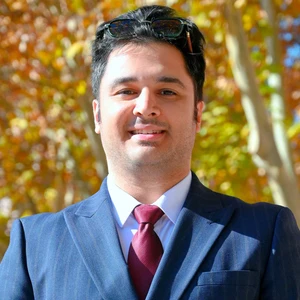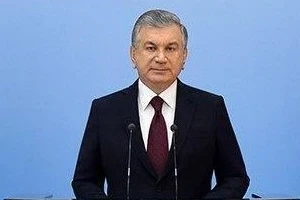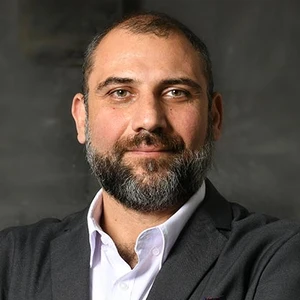
Airplane Crash Exposes Flaws in Baku-Moscow Relations
 By Vasif HUSEYNOV, PhD, Head of Department, AIR Center, Adjunct Lecturer, ADA and Khazar Universities, Baku By Vasif HUSEYNOV, PhD, Head of Department, AIR Center, Adjunct Lecturer, ADA and Khazar Universities, Baku
On December 25, Azerbaijan ended 2024 in nationwide sorrow and resentment following the crash of Azerbaijan Airlines Flight J2-8243 near Aktau, Kazakhstan. The Embraer 190 aircraft, carrying 67 passengers from Baku to Grozny, Chechnya, attempted an emergency landing but tragically crashed. Among those aboard were Azerbaijani, Russian, Kazakh, and Kyrgyz nationals. While 29 people survived, 38, including two pilots and a flight attendant, lost their lives. Initial reports attributed the crash to a collision with a flock of birds, but this theory was soon refuted when parts of the aircraft were found to bear shrapnel marks. The following day, Azerbaijani officials revealed that the crash was caused by a Russian surface-to-air missile, which exploded near the aircraft mid-flight, with shrapnel injuring passengers and crew. This incident has strained Azerbaijan-Russia relations, as Moscow refused to accept responsibility for the tragedy. READ MORE
- EGF Editor |
Published on EGF: 17.01.2025
| External Relations
-
What Aliyev’s Reaction to the Airplane Crash Tells Us about Azerbaijan’s Relations with the West
 By Vasif HUSEYNOV, PhD, Head of Department, AIR Center, Adjunct Lecturer, ADA and Khazar Universities, Baku By Vasif HUSEYNOV, PhD, Head of Department, AIR Center, Adjunct Lecturer, ADA and Khazar Universities, Baku
On December 30, Germany’s Der Spiegel, a publication often perceived as critical and biased against Azerbaijan – similar to many other German media outlets – reported on Azerbaijani President Ilham Aliyev’s reaction to Russia’s handling of a recent aeroplane crash crisis between the two countries. The publication noted, “Aliyev’s reaction is a testament to the increased weight of his country.” It continued, “Aliyev called the previous statements from the Russian side ‘nonsensical,’ ‘absurd,’ and ‘stupid.’ He spoke of attempts to cover up the situation and made it clear that with his apology, Putin had fulfilled only one of several conditions that Baku had demanded of Moscow.” For Der Spiegel, it appeared surprising that a relatively small country in Russia’s neighbourhood – often dismissed in the West as part of Moscow’s “backyard” – could stand up assertively against perceived injustices and demand its rights. READ MORE
- EGF Editor |
Published on EGF: 08.01.2025
| External Relations
-
Turkey’s ‘Golden Era’ in Central Asia and the Future of the Organization of Turkic States  By Yeghia TASHJIAN, Beirut-based regional analyst and researcher, columnist, "The Armenian Weekly” By Yeghia TASHJIAN, Beirut-based regional analyst and researcher, columnist, "The Armenian Weekly”
With the world’s focus on Russia and its war in Ukraine, China has been advancing its influence through the Belt and Road Initiative, amid Iran’s political and military withdrawal from the Levant. Turkey, through the Organization of Turkic States (OTS), has been expanding its footprint in Central Asia. Ankara aims to increase its political and economic influence over the region by promoting regional stability and building stronger ties. Its objectives can be categorized as follows:
- Pan-Turkism: Turkey sees itself as the head of the Turkic-speaking peoples in the South Caucasus and Central Asia. Using various tools and strategies, Turkey aims to enhance its cultural, historical and linguistic ties. For instance, in September 2024, the Turkic Academy agreed on a common 34-letter alphabet that would help the 170 million Turkic people worldwide understand and cooperate with each other more effectively.
- The OTS is also another way for Turkey to position itself in a vital role amid regional political dynamics. Central Asia looks to balance relationships with Russia and China, while the U.S. is working to undermine their influence, making Turkey an appealing partner for Central Asian states that seek to diversify their foreign relations and avoid dependence on a single external power. These states engage in multilateral forums such as the OTS and strengthen bilateral ties, such as when Turkey and Kazakhstan signed a deal to become strategic partners.
READ MORE
- EGF Editor |
Published on EGF: 08.01.2025
| External Relations
-
Revitalizing the Organization of Turkic States Amid Global Unrest  By Vusal GULIYEV, Head of Shanghai Office at AZEGLOB Consulting Group and Policy Expert at the Baku-based Topchubashov Center By Vusal GULIYEV, Head of Shanghai Office at AZEGLOB Consulting Group and Policy Expert at the Baku-based Topchubashov Center
The Organization of Turkic States (OTS) has gained renewed significance amid global geopolitical unrest and economic uncertainty. As regional tensions rise, member states are leveraging shared linguistic, cultural, and historical ties to foster closer economic, political, and security cooperation. The OTS aims to enhance intra-regional trade, energy collaboration, and collective resilience, positioning itself as a key player in stabilizing and advancing the interests of the Turkic world in an increasingly volatile global landscape.The recent regional events and the geopolitical consequences of the Russo-Ukrainian war have had a profound impact on the dynamics among Türkiye, Azerbaijan, and the Central Asian Turkic states (Kazakhstan, Uzbekistan, and Kyrgyzstan). This shifting geopolitical landscape has been the catalyst of collaboration and integration for these countries under the Organization of Turkic States (OTS), an intergovernmental organization that aims to foster cooperation among Turkic-speaking nations. READ MORE
- EGF Editor |
Published on EGF: 08.01.2025
| External Relations
-
The support of UN member states for Uzbekistan's initiatives is the result of systemic reforms in the country  Gayrat Khonnazarov, Editor-in-Chief, UzA news agency
Gayrat Khonnazarov, Editor-in-Chief, UzA news agency
The Republic of Uzbekistan has demonstrated significant success in the international arena, strengthening its active participation in the United Nations (UN) and its specialized agencies. In 2024, the country achieved a number of key milestones that underline its commitment to universal principles and standards in the areas of human rights, socio-economic development, labor, and global cooperation.
READ MORE
- EGF Editor |
Published on EGF: 27.12.2024
| External Relations
-
Prospects and Challenges in Armenia–Azerbaijan Peace Talks
 By Benyamin POGHOSYAN, PhD, Chairman, Center for Political and Economic Strategic Studies
By Benyamin POGHOSYAN, PhD, Chairman, Center for Political and Economic Strategic Studies
Currently, the situation is intriguing. Both sides claim substantial progress in peace talks. At the December 5 Organization for Security and Cooperation in Europe (OSCE) Ministerial Council, Armenia’s foreign minister announced that the preamble to the peace agreement text and 15 out of its 17 articles had been finalized. The Armenian prime minister later stated that 90% of the text was agreed. However, according to the Azerbaijani state-affiliated think tank AIR Center, at least three contentious issues remain unresolved: the presence of the European Union (EU) mission in Armenia, constitutional and legal changes in Armenia, and the withdrawal of Armenia’s legal cases against Azerbaijan in international courts. Baku has also proposed two other preconditions to any peace agreement. These include dissolving the OSCE Minsk Group and establishing a “Zangezur corridor” free of Armenian control.
READ MORE
- EGF Editor |
Published on EGF: 20.12.2024
| External Relations
-
Breaking the Present Deadlock in the Armenia-Azerbaijan Peace Process Will Remain a Formidable Task in 2025
 By Vasif HUSEYNOV, PhD, Head of Department, AIR Center, Adjunct Lecturer, ADA and Khazar Universities, Baku By Vasif HUSEYNOV, PhD, Head of Department, AIR Center, Adjunct Lecturer, ADA and Khazar Universities, Baku
On 10 December, the Center for Analysis of International Relations (AIR Center), a Baku-based political think tank closely affiliated with the Azerbaijani government, held a high-level international conference titled “The Main Obstacle to a Peace Agreement Between Azerbaijan and Armenia.” The conference identified the territorial claims in Armenia’s constitution against Azerbaijan as the primary obstacle to peace. Elnur Mammadov, Azerbaijan's Deputy Foreign Minister, contributed to the discussion as keynote speaker, clarifying the position of the Azerbaijani government on the issue. The event also featured James Sharp, former UK Ambassador to Azerbaijan, and Židas Daskalovski, adviser to the North Macedonian president, who shared insights from their countries’ experiences in amending constitutions to resolve interstate disputes. READ MORE
- EGF Editor |
Published on EGF: 20.12.2024
| External Relations
-
The Multidimensional Foreign Policy of New Uzbekistan  Bakhram Sotiboldiev,
Bakhram Sotiboldiev,
Head of the Department of the Institute for Strategic and Regional Studies under the President of the Republic of Uzbekistan
In today's rapidly changing world, Uzbekistan confidently positions itself as one of the key players on the international stage. The country’s foreign policy, reinvigorated with the election of Shavkat Mirziyoyev as President in 2016, demonstrates impressive results, transforming the republic into a significant center for regional and global diplomacy. READ MORE
- EGF Editor |
Published on EGF: 16.12.2024
| External Relations
-
Georgia’s Post-Election Turmoil: Scenarios for the Future and Regional Consequences  By Eugene KOGAN, Tbilisi-based defence and security expert By Eugene KOGAN, Tbilisi-based defence and security expert
Georgian parliamentary elections on 26 October 2024 have been highly contested with the opposition claiming that their win was stolen from them by the incumbent Georgian Dream party. As a result, the opposition initiated a legal procedure, demanded new elections and started peaceful protests against the election result, apparently to no avail. On 16 November, Georgia’s Central Election Commission validated the results of October’s highly contested elections, despite weeks of protests by the opposition and accusations of widespread fraud and Russian interference that were refuted by the Kremlin. This AIES Comment provides a perspective based on a combination of issues that highlight not just a divided but also a traumatised Georgian society that remembers the August 2008 war and is not ready to fight Russia again nor to deal with potential Russian interference.
READ MORE
- EGF Editor |
Published on EGF: 13.12.2024
| External Relations
-
The Geopolitical Aspects of the India-Armenia Partnership


 By Nvard CHALIKYAN, Research Fellow, APRI Armenia
By Nvard CHALIKYAN, Research Fellow, APRI Armenia
Benyamin POGHOSYAN, PhD, Senior Research Fellow, APRI Armenia
Verej ISANIANS, Senior Editor, APRI Armenia
The South Caucasus is an important Eurasian political and economic hub, as its transport networks have the potential to facilitate travel across the continent. Control over the South Caucasus grants access to the Black Sea and the Caspian Sea basin, serving as a gateway to Central Asia and the Greater Middle East. Given its strategic importance, regional powers such as Russia, Türkiye, and Iran have vied for influence in the South Caucasus for centuries. In recent years, the demand for alternative transport corridors has surged amid the ongoing Ukraine war, sanctions on Russia, conflicts in the West Asia (Middle East) region, and the resulting difficulties with traditional supply routes such as the Suez Canal. Consequently, the South Caucasus has become increasingly important as a link between Asia, Europe, and Russia.
READ MORE
- EGF Editor |
Published on EGF: 13.12.2024
| External Relations
-
|
|
